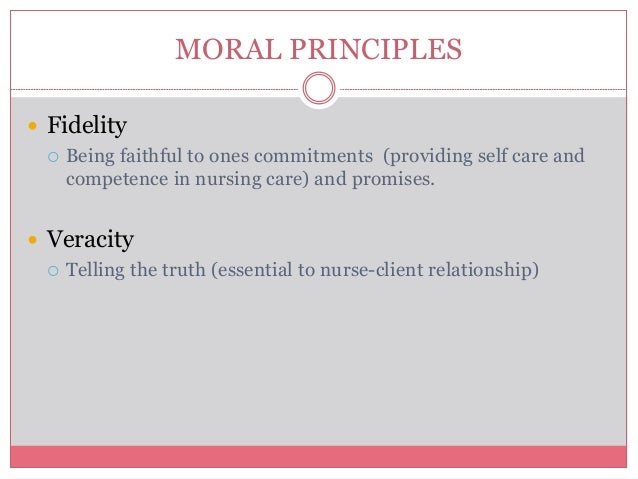
Ethical Principle Of Fidelity. The importance of fidelity in nursing ethics. It is this relationship which is the medium for genuine healing and fidelity is the glue which holds it together. Fidelity is considered by many nurses to be the most common source of ethical conflict. Faith basically means trust and faithfulness implies a trust.

In health care fidelity is the most important of the ethical principles because it governs the other six. A nurse should be faithful obedient honest. Fidelity or loyalty is an important ethical principle and is a vital component of the nursing profession. It is this relationship which is the medium for genuine healing and fidelity is the glue which holds it together. Fidelity is the principle concerned with building trusting relationships between researchers and research participants. The ethical principles that apply to each case are veracity and fidelity.
Nurses promise to provide competent care to patients and to do so in a way that is honest responsible and fair.
Fidelity or loyalty is an important ethical principle and is a vital component of the nursing profession. Fidelity and responsibility which stresses the importance of professional transparency and peer review as a means of ensuring ethical standards are being met justice or striving to provide equal access to psychology and its benefits while eliminating discrimination and biases. This principle concern with the trust relationship between the client and counsellor. The ethical principles that apply to each case are veracity and fidelity. Nurses promise to provide competent care to patients and to do so in a way that is honest responsible and fair. Principle of fidelity principle of fidelity states how psychologist establish trust with whom they work with in accordance to the american psychological association apa ethical principles of psychologists and code conduct.